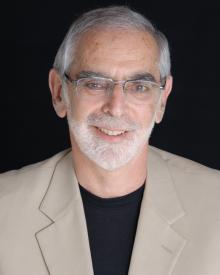
The field of international political economy gained prominence in the 1970's, when the Arab oil embargo and other crises ended the post- World War II era of virtually unhindered economic growth in the United States and Europe. Today, it is an essential component of both political science and economics, and integral to our understanding of global economic crises.
In his new book "International Political Economy: An Intellectual History" (Princeton University Press, 2008), Benjamin Cohen, the Louis G. Lancaster Professor of International Political Economy at UC Santa Barbara, examines how the field developed and describes the efforts of scholars to meet the challenges posed by an ever more complex and interdependent world economy.
He explains the critical role played by the early "intellectual entrepreneurs" who were determined to bridge the gap between international economics and international politics. Among them were "brilliant thinkers" such as Robert Keohane, Susan Strange, and others whose legacies endure to the present day. Cohen also studies the distinctly different insights of the American and British schools of international political economy and addresses issues that have been central to the field's development, including systemic transformation, system governance, and the place of the sovereign state in formal analysis.
"What we understand about international political economy tells us a great deal about why it's so difficult for policymakers to manage a crisis –– such as our current economic situation –– when it occurs, both domestically and internationally," Cohen said. "International political economy provides insight into the political and institutional constraints on decision-making."
By the end of the 19th century, the two fields of international economics and international politics had gone their separate ways, according to Cohen. By the 1960's, however, following the post-World War II recovery of the world economy, economic relations between states were becoming much more influential and important than they had been previously.
"As economies opened up after the war, it became increasingly evident that something was happening in the world that had political consequences," said Cohen. "This growing interdependence of national economies was a phenomenon that had international consequences. At the same time, there was a sense that the stability of the world economy was declining because of the relative decline of the United States from the dominant position it had held at the end of the war."
While scholars in both areas of study –– political science and economics –– began trying to understand the economics and the politics of the world economy, political scientists in the 1970's made a deliberate effort to integrate the two into a single field of study.
"Regrettably, the field of international political economy was no more prescient about the current crisis than any other academic field or anyone else," said Cohen. "There had been a lot of studies of financial crises and what caused them, but no ability was developed to make predictions or forecasts.
"Economists are very good at telling us what optimal policy would be, but we rarely see those best policies implemented," he said. The reasons for that disconnect have to do with ideological differences; conflicts of interest between powerful constituencies; institutional constraints at the domestic or international level; and the inability of people to overcome their particular interests in order to act for the common good.
"All of these are characteristics the field of international political economy sensitizes us to and teaches us to think about so we can have a better sense of why actual policy tends not to follow the optimal policies economists often propose," said Cohen.
Related Links



